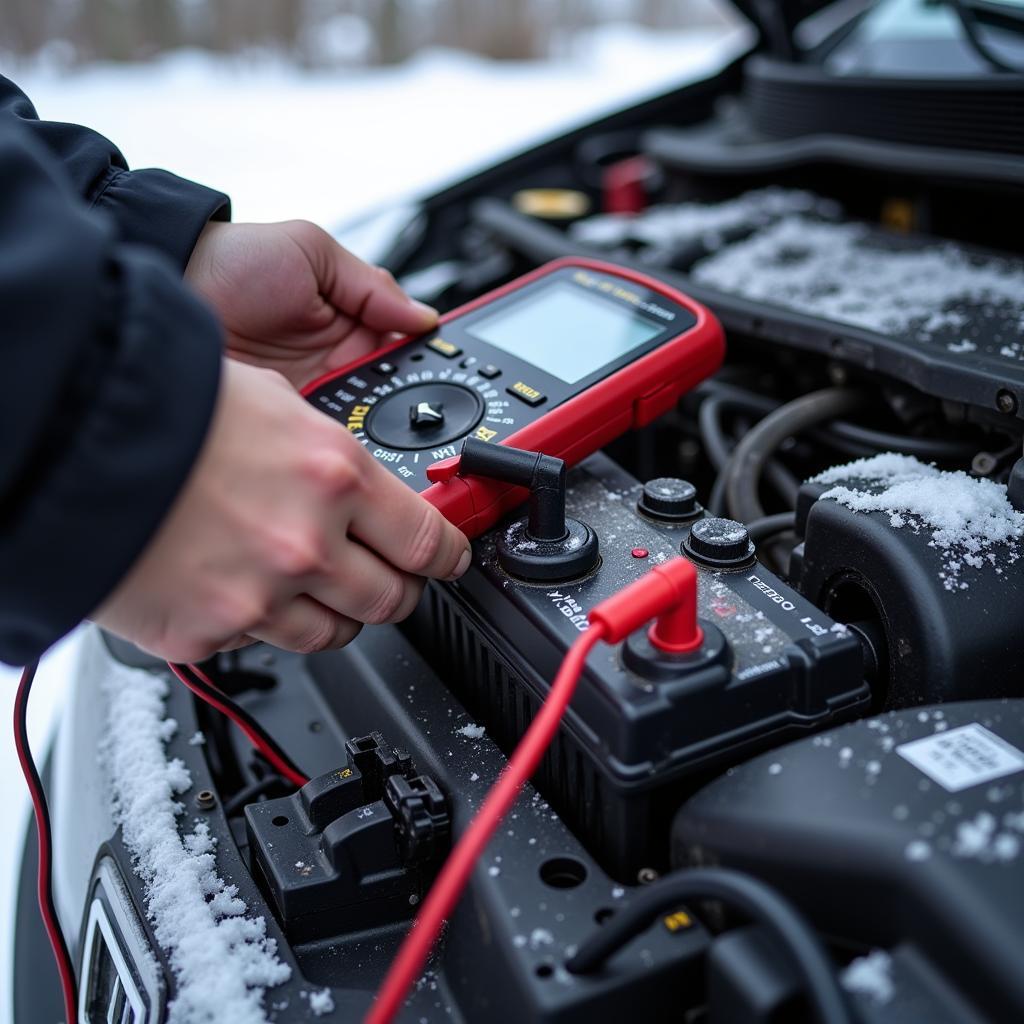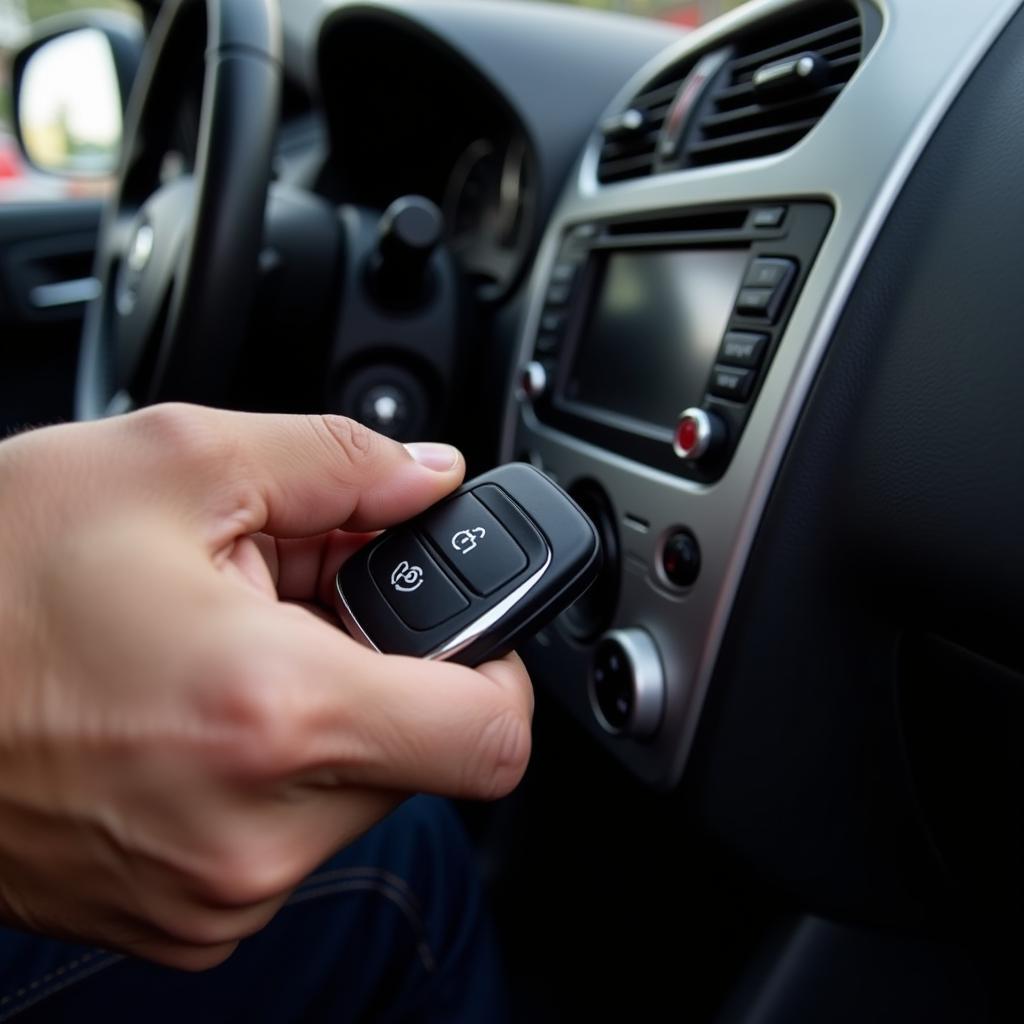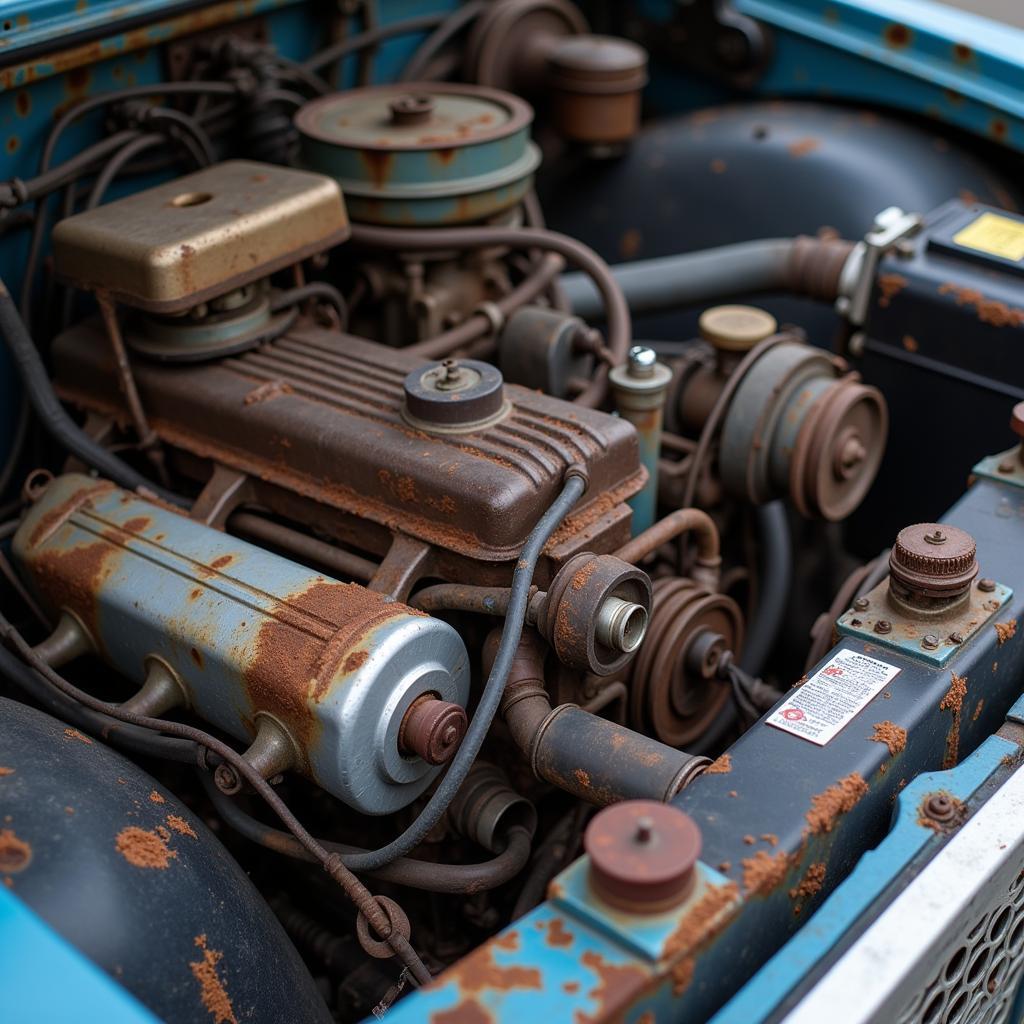Experiencing a problem starting your car in winter? You’re not alone. Cold weather can wreak havoc on your vehicle’s starting system, leaving you stranded in the frigid air. This guide will help you troubleshoot and fix common cold-weather starting problems, ensuring you can get back on the road quickly and safely.
Understanding why cars struggle to start in winter is the first step to solving the problem. Lower temperatures thicken engine oil, making it harder for the engine to turn over. Battery performance also decreases significantly in the cold, reducing its ability to provide the necessary power for starting. Combine these factors, and you have a recipe for a frustrating morning.
Common Causes of Problem Starting Car in Winter
Several factors can contribute to Problem Starting Car In Winter. Identifying the root cause is crucial for effective troubleshooting. Here are some of the most frequent culprits:
- Weak Battery: A failing battery is the most common reason for winter starting issues. Cold temperatures reduce a battery’s cranking power, and an already weak battery may not be up to the task.
- Thickened Oil: As temperatures drop, engine oil becomes thicker, increasing resistance and making it harder for the starter motor to turn the engine.
- Faulty Starter Motor: A worn-out starter motor might struggle to turn over a cold engine, especially if the battery is also weak.
- Fuel System Problems: In extreme cold, fuel lines can freeze, preventing fuel from reaching the engine. This is less common in modern vehicles but can still occur.
- Spark Plug Issues: Worn or fouled spark plugs can make it difficult for the engine to ignite the fuel-air mixture, especially in cold weather.
 Checking Car Battery in Winter
Checking Car Battery in Winter
Troubleshooting and Fixing a Problem Starting Car in Winter
Once you’ve identified the potential cause, you can begin troubleshooting and fixing the problem. Here’s a step-by-step guide:
-
Check the Battery: Test the battery voltage using a multimeter. A fully charged battery should read around 12.6 volts. If the voltage is significantly lower, the battery may need to be charged or replaced.
-
Inspect the Battery Terminals: Ensure the battery terminals are clean and free of corrosion. Corrosion can impede the flow of electricity and prevent the car from starting. Clean them with a wire brush and baking soda solution if necessary.
-
Check the Starter Motor: If the battery is good but the engine still won’t crank, the starter motor may be faulty. You can test the starter motor by tapping it gently with a hammer while someone tries to start the car. If the car starts, the starter likely needs replacement.
-
Examine the Fuel System: Check for frozen fuel lines or a clogged fuel filter. If you suspect a fuel system problem, it’s best to consult a qualified mechanic.
-
Inspect Spark Plugs: Check the spark plugs for wear and tear or fouling. Replace them if necessary.
Similar to car problems cold weather, cold weather affects cars in different ways.
Preventing Problem Starting Car in Winter
Prevention is always better than cure. Here are some tips to avoid problem starting car in winter:
- Battery Maintenance: Have your battery tested regularly, especially before winter arrives. Consider replacing your battery every 3-5 years.
- Use a Battery Tender: A battery tender keeps your battery fully charged during periods of inactivity, especially important in cold weather.
- Use the Right Oil: Use an engine oil with the correct viscosity for winter temperatures. Check your owner’s manual for recommendations.
- Park in a Garage: If possible, park your car in a garage or covered area to protect it from the elements.
- Block Heater: In extreme cold, consider using a block heater to keep the engine warm.
For those interested in understanding more about problems with push start cars in the cold, this resource offers valuable insights. This is particularly important as push-start technology becomes increasingly common.
Conclusion
Problem starting car in winter can be a significant inconvenience, but with a little knowledge and preparation, you can avoid most cold-weather starting issues. By understanding the common causes and taking preventative measures, you can keep your car running smoothly all winter long. Don’t hesitate to connect with AutoTipPro at +1 (641) 206-8880 or visit our office at 500 N St Mary’s St, San Antonio, TX 78205, United States for expert assistance and support with your car troubles. We are here to help!
This has similarities with problem if diesal car runs too cold in terms of cold-related issues, though the underlying causes and solutions might differ.
For a broader perspective on automotive issues across various locations, you can refer to car problems by region. This resource can help you understand how climate and other regional factors can affect vehicle performance.






Leave a Reply